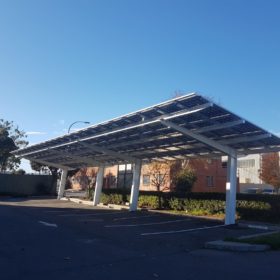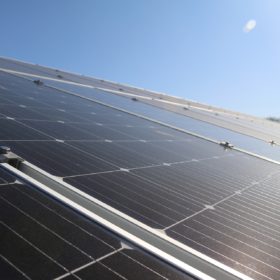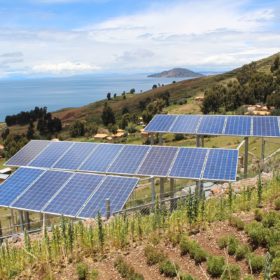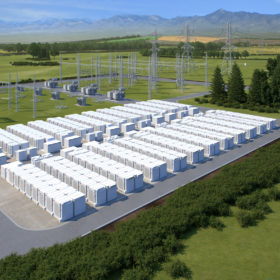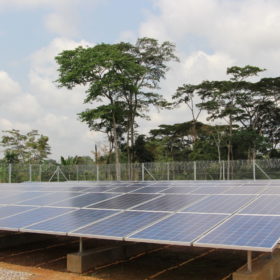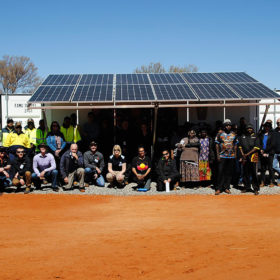New ‘slide-in’ solar canopy tech from Australia
Australian design and manufacturing company PVDymanics has unveiled a solar canopy technology which can be used with both framed and frameless solar modules. The company believes its system can revolutionize the micro-grid market.
Solar microgrid powers Indian health center
The Indian Institute of Science (IISc) Bangalore has installed a 5.2 kW solar system linked to 150 Ah of lead-acid battery storage in a project supported by the Sunrise program led by Swansea University, in Wales.
China could add 48 GW of solar next year – AECEA
The in-country analyst has revised up its expectation for this year and says a healthy unsubsidized project pipeline will keep the numbers ticking over in 2021. The spending plans necessary to ramp up renewables targets in the next five-year plan, though, could put the nation on a collision course with the EU.
Standalone PV with pumped storage could deliver LCOE of $0.053/kWh
A new Indian study shows that standalone PV systems combined with pumped storage could be a solution to energy poverty in developing nations. This easily deployable, chemical-free approach might be best in countries that lack battery-recycling rules, the researchers said.
Finnish brewery to deploy 20 MW battery and virtual power plant
A number of partners are involved in a project which aims to bring down the energy consumption and carbon emissions of a beer company site using smart algorithms.
A virtual-oscillator-based control strategy for microgrids
Researchers have modeled how the combination of a virtual oscillator control mechanism and a cascaded sliding mode control can help regulate voltage and frequency in a distributed-solar microgrid.
Solar-powered cooling system for crop storage
South African scientists have used a PV system to keep tomatoes in cold storage. They linked an air-cooling system and evaporative cooling tech to a 3.5 kW array and 12 batteries and tested it for 28 days in September.
European islands make decarbonization pledges
Often dependent on fuel imports from the mainland and frequently powered by fossil fuels, islands have taken center stage at an online forum which builds on a political process kicked-off by Croatia’s presidency of the European Council.
Thermodynamics-inspired model for microgrid feasibility
Researchers in the U.S. have deployed a phase model, inspired by thermodynamics, to total system costs and technology choices of power grids. Doing so allowed the group to make assumptions for when all renewables powered microgrids become the most economically viable option.
Off-grid solar solution offer water security for remote communities
Solar and energy storage play a key role in Project Gilghi, an off-grid water security system that could help people who have poor access to potable water and sanitation.
